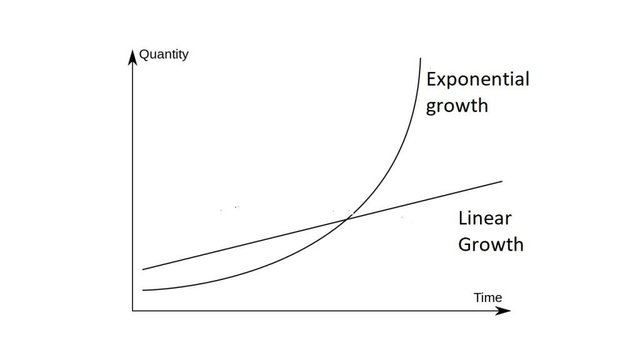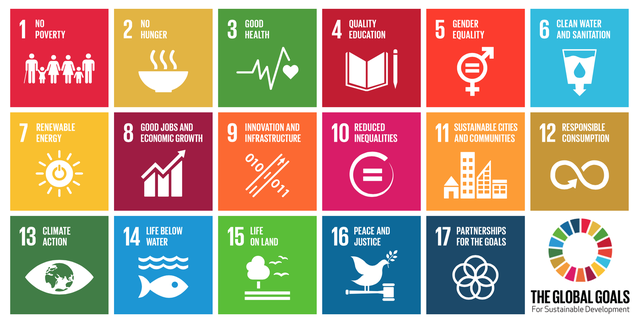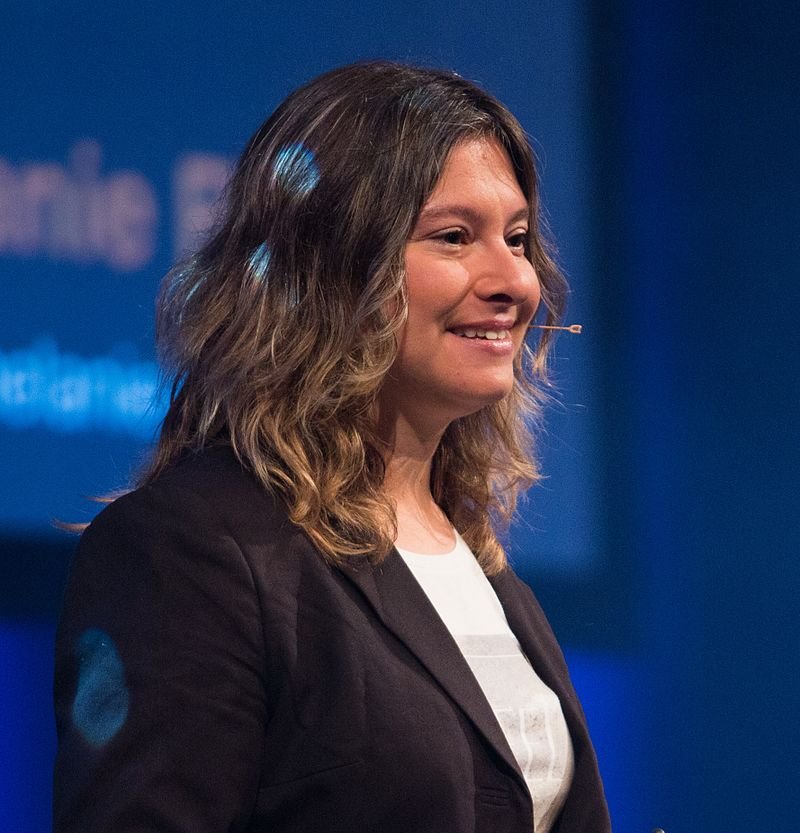"Business is one of the most effective forms of activism. Business is one of the most expressive forms of art." Melanie Rieback, CEO and Co-founder of Radically Open Security, the world’s first not-for-profit computer security consultancy company, explains what she means by this and why post-growth entrepreneurship can help to achieve our sustainable development goals.
We have been taught to think about business as a vehicle for commercial shareholders. But it can be so much more. It can even be a form of activism. We need new business models, especially at a time when unlimited growth is being challenged.
I am a hacker and I have a company with 40 ethical hackers. That means companies pay us to try to break into their computer systems and report any security holes we find. Previously I worked in the cybercrime team for a large Dutch bank. When I decided to leave and start my own cybersecurity company, I was determined to do this with a different business model in mind, but I didn't quite know how. A friend of mine, who works for the Dutch NLnet Foundation that supports open source community tools, suggested I create a company with a commercial front end and a not-for-profit back-end. So the profit wouldn't go into some shareholder's pockets, but into a not-for-profit cause, in this case the NLnet Foundation.
Post-growth economics
At that time I started reading some more about economics and discovered a book by Tim Jackson: Prosperity without Growth. There is now an entire movement of economists who are working on post-growth economics. They're asking questions such as: Why is it that our economy always has to go up and into the right? The moment our economy flattens, what happens? Recession! Lay-offs! Suffering! Why is this the case? Post-growth economists argue that there is too much extraction happening from our economy. This extraction can take the form of a dividend (i.e. stock) or an exit (i.e. mergers, acquisitions, IPOs). All these things pull value out of a company and hence out of the economy, which leads to a situation where our economy has to keep growing just for society to maintain a steady state. This growth puts pressure on our society and on our environment. We know by now that this is not sustainable. So we need to start looking for other models and think about how we can implement flat economies.
The problem with exponential growth
The economist Kate Raworth makes beautiful analogies with nature in her book Doughnut economics. She says for instance that any living organism - let’s say a tree or a dog or a child - grows very quickly, almost exponentially at the very beginning of its life. At a certain point in time that growth starts to flatten off. Then it stops growing and starts thriving. If that tree wants to keep growing even though it already has reached its maximum size, it drops seeds. Then these seeds can grow again until they reach their maximum size. And so on. If this is how nature does it, why should it be any different with our businesses?
Exponential growth curve
This exponential curve is ubiquitous. You will find it in every MBA programme, every start-up incubator, pop culture, etc. It is very hard to get away from this curve. It's the Silicon Valley model of entrepreneurship. There are three parts to this model:
- Capital
- Scaling
- Exit
But is this model getting us where we need or want to go?
1. Capital has a number of problems: If you bring external investors into your company, you are giving up a bit of control over your company. And if you’re trying to build social enterprises and vehicles for positive impact, sometimes having external interest in your company can be harmful.
2. Scaling: What if this exponential curve is primarily in service of the exit? Why do you need to grow exponentially if you are not planning on getting out in five years? If you are thinking more long-term, then slow and organic growth will get you there.
3. Exit: If you are trying to build a vehicle for positive, long-term impact, why is it necessary to sell out? You may ask: Why would I even want to to start a business if I don't want to make a profit? Maybe because it is your legacy. Maybe because you want to leave something great to the world. In that case, you want to build something that persists. You don’t necessarily want to build something that is taken over by either large corporations or thousands of shareholders. You want to maintain integrity so you can maintain direction.
Another thing that is problematic with our existing business model, is that start-capital can be a distraction from building a solid business. I would like to illustrate this point by comparing building a business with playing a game of darts:
There are two ways you can approach playing this game:
Either you take the dart and make a really big throw. If you're lucky and you have a bit of skill at playing darts, maybe you'll hit the target right in the center. Or maybe you won’t!
The second way you can tackle this problem is the following: you take your dart and you walk across the room and you place the dart in the center of the board.
Now, this is the difference between capital and exponential growth versus bootstrapping. Think about it this way: When you have money, you are tempted to spend it. When you start with nothing, it forces you to build creative models. You can start with the smallest possible kernel: a solid value proposition and a solid business model. You could start with one customer and one producer. Then you can build something larger on this initial foundation.
So how can we build companies with flat growth curves rather than exponential ones? This is a question almost nobody is asking. But it seems obvious:
- Avoid dividend.
- Avoid investors.
- Avoid exits.
Social entrepreneurship
This brings us to the related topic of social entrepreneurship. Why is it that social entrepreneurship isn’t getting us far enough? The Nobel prize winning economist Muhammad Yunus, inventor of micro-finance and founder of the Grameen bank, defines social business as follows: “No-dividend companies for solving human problems.” Many people like the idea of solving human problems, but no dividend? Not so much!
Most of the social entrepreneurs have extremely good intentions. The problem is that we are working within this system and we don’t even realise it. We need alternatives, and the first time I realised this I felt like I was looking at The Matrix for the first time. And that I had to decide if I take the red pill or the blue pill.
Also, separating the profit modus from the operational vehicle of business, makes it much easier to focus on a good cause (many social entrepreneurships focus on sustainable development goals, but overall they only make up 0.01% of the market).

Global sustainable development goals as set by the UN
This brings me back to my story: Radically Open Security as a Fiscal Fundraising company seemed like a good idea. But how has this worked in practice? After only three years, we had already made a donation of EUR 140,000 to the NLnet Foundation. And we are set up to make such a donation every year. It is the opposite of philanthropy where you get rich first and then make the donation. Now, the donation is built into the core of our business. And I am very proud of this.
I also created a start-up incubator called Non-profit Ventures. We are giving classes to test these ideas and see how we can build more vehicles for pure positive impact, but in other areas than cybersecurity. We are also helping to re-write the Business School curriculum at the Vrije Universiteit in Amsterdam. I'm happy to see that this topic is getting quite a lot of attention at the moment. And that’s probably also because it is not just theory. We are actually building this. We can build the post-growth economy - one start-up at the time!
This article is based on Melanie Rieback's TED talk.





Comments 0
The comments section is closed for articles published more than a year ago. If you'd like to inform us of any issues, please contact us.